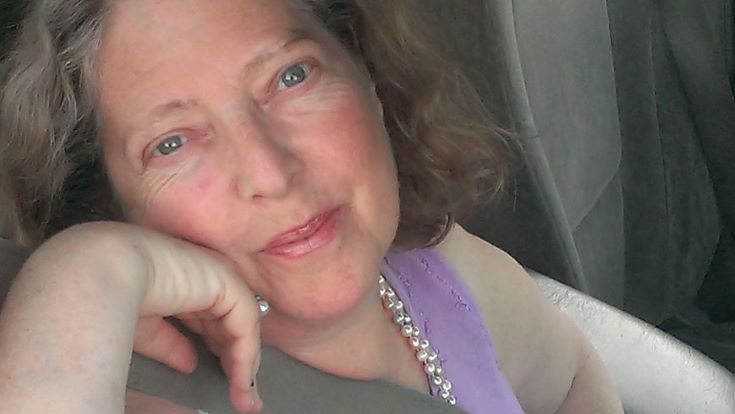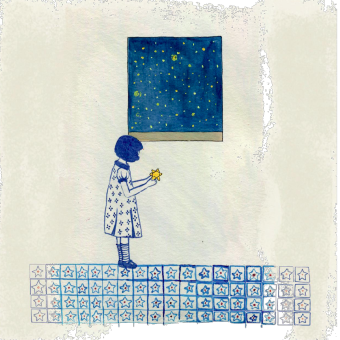Anne Frank's Enduring Message in Latin America
Oct. 25, 2018
By Dalia Wassner
Editor's note: We invite you to join us for the launching of HBI’s Project in Latin American Jewish & Gender Studies, as we bring the reimagining of Anne Frank’s diary in South America to the stage. "A Latin American Pen, A Global Memory: Imagining Anne Frank Today" will be presented at 7:30 p.m. Nov. 1 at Riemer-Goldstein Theater, JCC Greater Boston 333 Nahanton St. Newton, Massachusetts.
To ask why the Anne Frank House is popular in Buenos Aires is to ask what Anne means to the Jews of Latin America.
While the Anne Frank House provides both a replica of "the back room" or attic where Anne was hidden for over two years in Amsterdam, it more broadly serves as a local site and resource of education about the 1976-83 military dictatorship in Argentina. Most importantly, it serves as an ongoing vanguard against all forms of religious, ethnic, political, and gendered discrimination and violence.
 Marjorie Agosín, a Chilean exile herself, is cognizant of the importance of Anne's message in terms of Holocaust remembrance, and in its enduring applicability to subsequent instances of human rights abuses. In her 2015 book, "Anne: An Imagining of the life of Anne Frank," translated from the Spanish "Ana: Reimaginado El Diario de Ana Frank," Agosín writes specifically to the children of Chile living in the aftermath of Augusto Pinochet's dictatorship of 1973-98:
Marjorie Agosín, a Chilean exile herself, is cognizant of the importance of Anne's message in terms of Holocaust remembrance, and in its enduring applicability to subsequent instances of human rights abuses. In her 2015 book, "Anne: An Imagining of the life of Anne Frank," translated from the Spanish "Ana: Reimaginado El Diario de Ana Frank," Agosín writes specifically to the children of Chile living in the aftermath of Augusto Pinochet's dictatorship of 1973-98:
"In 1973, when Chile's military junta smashed down the doors of our neighborhood to arrest women-yanking them by their hair, which would later be shaved off — when they 'disappeared' them on dense foggy nights, I thought about Anne Frank. When the military junta in Argentina tortured Jews under portraits of Hitler, I thought about Anne Frank."
 Agosín's words and illustrator Francisca Yáñez's emotionally poignant drawings, provide a contemporary retelling of Anne's story that focuses on the scant month between Anne's 12th birthday June 12, 1942, when her father gave her the now-famous diary, and July 6, the date the family went into hiding in "the Secret Annex." Intended for an audience between the ages of 8-16, Agosín's re-imagination of Anne's diary focuses on a young woman's experience of the very loss of freedom. Anne is not therefore simply an innocent girl, but rather a powerful witness to her own stifled life, reflecting on the dissolution of democracy in her world — a world that was essentially evicting her. The girl who is so often quoted for her enduring belief in the goodness of mankind while enduring the worst of its machinations, is adopted here by Agosín as a witness that testifies to her own doom resulting from a measurable failure of societal courage.
Agosín's words and illustrator Francisca Yáñez's emotionally poignant drawings, provide a contemporary retelling of Anne's story that focuses on the scant month between Anne's 12th birthday June 12, 1942, when her father gave her the now-famous diary, and July 6, the date the family went into hiding in "the Secret Annex." Intended for an audience between the ages of 8-16, Agosín's re-imagination of Anne's diary focuses on a young woman's experience of the very loss of freedom. Anne is not therefore simply an innocent girl, but rather a powerful witness to her own stifled life, reflecting on the dissolution of democracy in her world — a world that was essentially evicting her. The girl who is so often quoted for her enduring belief in the goodness of mankind while enduring the worst of its machinations, is adopted here by Agosín as a witness that testifies to her own doom resulting from a measurable failure of societal courage.
"Anne Frank reminds us of the power of writing to serve as a symbol of both resistance and liberty; Anne maintained an inner truth that could not be subjected to the devices of discrimination and terror," said Héctor Shalom, director of the Anne Frank House of Buenos Aires. He notes that the Buenos Aires Anne Frank House events are planned in commemoration of her birth, not death. It is, in fact, located in a home that offered refuge to leftists during the years of Argentina's military dictatorship.
Providing an Anne beyond the annex in "Anne: An Imagining of the life of Anne Frank," Agosín delivers a writer in the making. She illuminates adolescent Anne's blossoming feminine sexuality and reveals the young woman's awareness of her society's compliance in excluding her from its schools, ice cream shops and gardens. Instead of Anne's famous pardon, Agosín provides a resounding and enduring "j’accuse" of the failures of humanity and democracy. The reader is thus faced with the poignant testament of a young woman’s life lost.
 Dalia Wassner, PhD, leads the HBI Project on Latin American Jewish and Gender Studies.
Dalia Wassner, PhD, leads the HBI Project on Latin American Jewish and Gender Studies.
Marjorie Agosín is an award-winning poet, human rights activist, author and a professor of Latin American literature at Wellesley College. She is also a member of HBI’s Academic Advisory Council.
"A Latin American Pen, A Global Memory: Imagining Anne Frank Today" will be co-sponsored with the JCC Greater Boston, Gann Academy, Facing History & Ourselves, Hadassah Boston, Jewish Women's Archive, and Temple Beth Zion, Brookline.
*Parts of this blog were adopted from Dalia Wassner's "Introduction to Anne: An Imagining of the Life of Anne Frank by Marjorie Agosín" and illustrated by Francisca Yáñez.